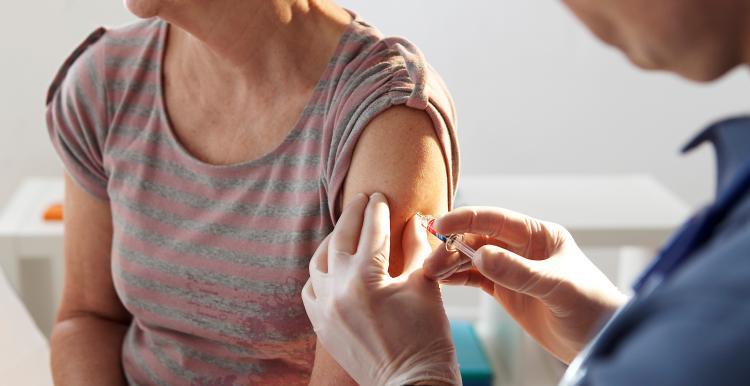What is flu and what is the flu vaccine?

What is the flu?
Flu is a contagious respiratory illness that infects the nose, throat and sometimes the lungs. It can cause mild to severe symptoms, which often come on suddenly. For some people, Flu can be dangerous and even life-threatening.
Symptoms of the Flu can come on quickly and can include a sudden, high temperature, body aches, and a sore throat or dry cough.
Children can present the same symptoms but may also experience ear pain and appear less active.
Who can have the flu vaccine?
The flu vaccine is free on the NHS to people who are:
- aged 65 years and over
- aged 6 months to under 65 years in clinical risk groups
- pregnant
- two or three years on August 31, 2023
- primary school-aged
- in long-stay residential care homes
- carers in receipt of carer's allowance
- the primary carer of an elderly or disabled person
- close contacts of immunocompromised individuals
- frontline workers in a social care setting without an employer-led occupational health scheme
Pneumococcal vaccine
If you're 65 or over, you're also eligible for the pneumococcal vaccine, which will help protect you from pneumonia. Ask your GP surgery.
How do you avoid catching or spreading flu?
Flu is very infectious and easily spread to other people. You're more likely to give it to others in the first 5 days.
To reduce the risk of spreading or catching flu, you should:
- get the flu vaccine
- wash your hands often with warm water and soap
- cover your mouth and nose with a tissue when you cough or sneeze
- bin used tissues as quickly as possible
- strengthen your immune system with vitamins
How can you get a flu vaccine?
It is best to have your flu vaccine in the autumn or early winter before flu rates increase. If you're eligible for a free NHS flu vaccine, you can book an appointment at:
- your GP surgery
- a local pharmacy offering NHS flu vaccines.
- some maternity services if you're pregnant.
- a hospital that provides a vaccine service
You might also receive an invitation to get vaccinated but do not need to wait for one.
You do not need to be registered with a GP or have an NHS number to get a vaccine. You may be asked to confirm your eligibility for the flu vaccine. No immigration checks are carried out when you receive the vaccine.
Flu and coronavirus
As a result of the pandemic, fewer people have a natural immunity to Flu. If you get Flu and COVID-19 simultaneously, you could become seriously ill. It’s therefore important to get your flu and COVID-19 vaccines if you’re eligible.
Need more information?
If you have more questions and queries about the Flu vaccine and your eligibility, please read the NHS and government guidance
NHS Inform Flu vaccine information
Patient Access Immunisation against Flu
Government guidance on 2023 - 2024 flu vaccine programme


